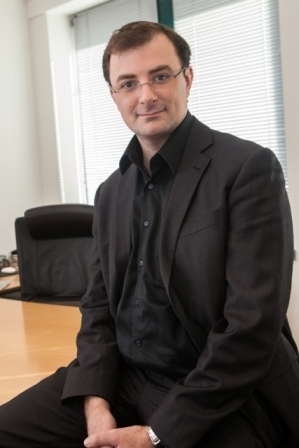 |
by Alessandro Cortese, President of the European Society of Association Executives (ESAE) and CEO of the European Society for Radiotherapy and Oncology (ESTRO)
Executive Master program. January 2015 will see the light of a new initiative. The Solvay Brussels School Economics & Management, with the partnership of ESAE (European Society of Association Executives), UIA (Union of International Associations) and FAIB (Federation of European and International Associations established in Belgium), will launch an Executive Master program in International Association Management.
In order to further build the leadership capacities, strategic planning and management skills of association managers and thus enhance the reputation of the association management profession, ESAE, UIA and FAIB seek to develop a learning experience in Brussels with the Executive Education branch of the Solvay Brussels School Economics & Management (SBS-EM).
The Executive Master in International Association Management will be taught by academics from the Solvay Brussels School-EM and will feature regular intervention from prominent association executives sharing their insights and expertise with the objective of providing association professionals with increased opportunities.
The Solvay Brussels School faculty will comprise highly qualified academic experts, all with extensive business experience. These module leaders will team up with qualified association specialists allowing for a bottom-up approach in defining the module content. Real-world perspective will thus complement academic study throughout the programme.
Many leaders of important international associations or global AMCs have already confirmed their participation as speakers: Isabel Bardinet, CEO ESC; Michel Ballieu, CEO ECCO; Robin Lokerman, CEO Institutional Division MCI; Andrea Bauer, CEO Vereint; Alfons Westgeest, Group VP Kellen Company; Alain Flausch, Secretary General and Helga Severyns, Senior Director UITP. The writer of this article will also accompany them, together with other speakers to be announced in the next weeks on the website of the programme.
The program is therefore designed to provide training in leadership skills, to illustrate a broad coverage of the main fundamental strategic and functional areas in management, and to understand best practice across the association sector.
It is targeting practiced association managers from professional and scientificsocieties (organizations with direct individual membership), trade organizations and federations, and association management companies (AMCs).
The program will take place within a maximum period of six calendar months starting in January 2015. It will comprise 16 full days spread in seven self-contained modules of two or three days on Thursdays, Fridays and Saturdays.
A first module will be dedicated to “Leadership & Change Management”. The realization that leadership is a relationship and not just a personal skill or talent will encourage participants to embrace self-awareness and a whole range of personal, interpersonal and team skills that they can learn, develop and practice in order to become better leaders. A second module will be dedicated to “Finance & Performance”, introducing the basic concepts and tools of financial management: capital budgeting decisions and financing decisions.
The third and fourth modules will focus on “Strategic Management”, providing the participants with an introduction to business strategy. The aim is to allow participants to develop a view of strategic management, helping them to identify the fundamental determinants of success in their business environment.
The next module will be dedicated to “Marketing, Branding & Advocacy” with the objectives being to make participants aware of the importance of marketing in today’s economy and to understand the contemporary approach and culture of “value-focused” marketing. The last module, “Project & Event Management”, will provide a structured setting in which the participants can familiarize themselves with the most important ideas in project management, and learn how to apply these concepts to their personal working needs and those of their organization.
The photo was taken by Malek Azoug.